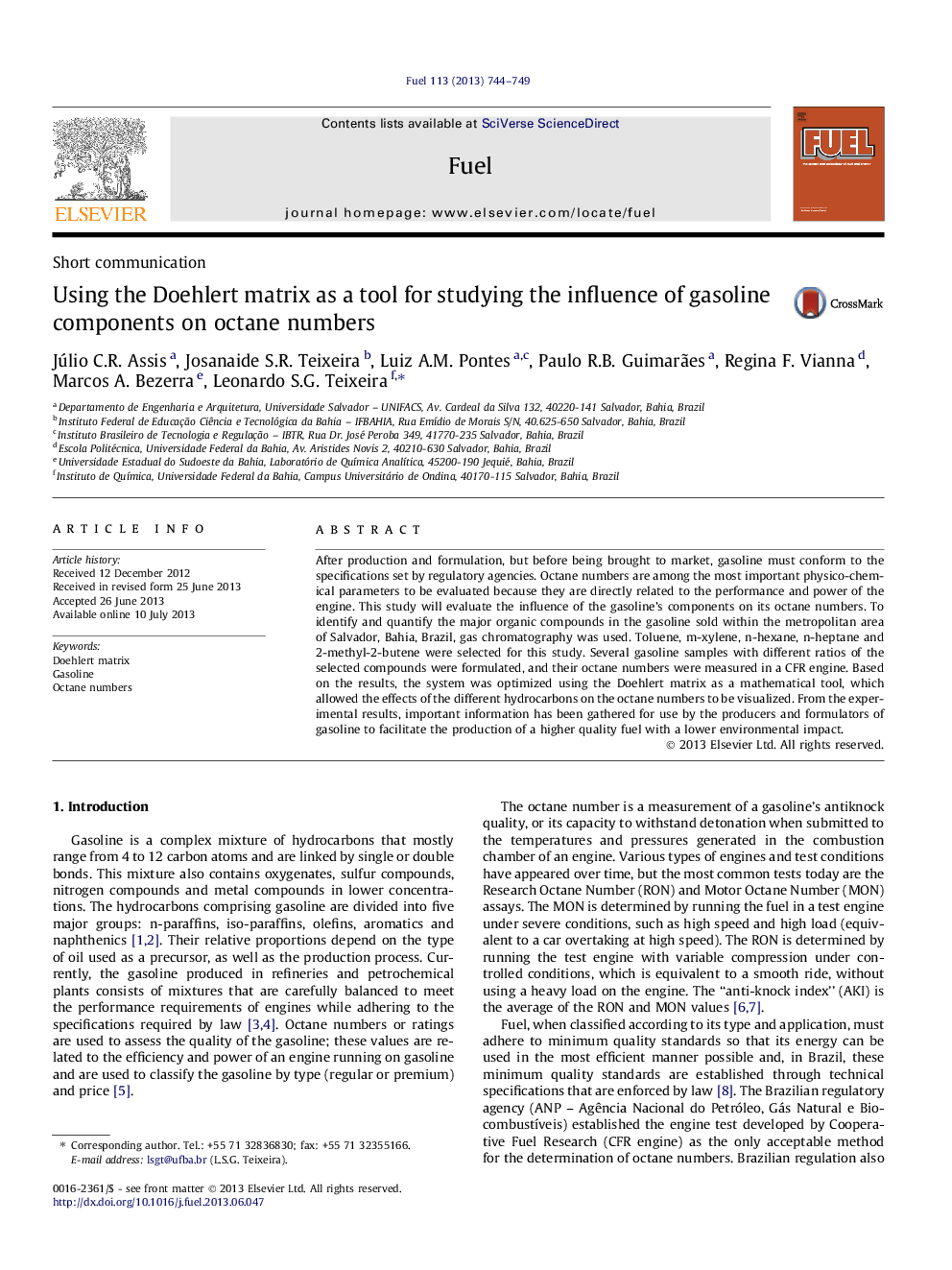| Article ID | Journal | Published Year | Pages | File Type |
|---|---|---|---|---|
| 6640114 | Fuel | 2013 | 6 Pages |
Abstract
After production and formulation, but before being brought to market, gasoline must conform to the specifications set by regulatory agencies. Octane numbers are among the most important physico-chemical parameters to be evaluated because they are directly related to the performance and power of the engine. This study will evaluate the influence of the gasoline's components on its octane numbers. To identify and quantify the major organic compounds in the gasoline sold within the metropolitan area of Salvador, Bahia, Brazil, gas chromatography was used. Toluene, m-xylene, n-hexane, n-heptane and 2-methyl-2-butene were selected for this study. Several gasoline samples with different ratios of the selected compounds were formulated, and their octane numbers were measured in a CFR engine. Based on the results, the system was optimized using the Doehlert matrix as a mathematical tool, which allowed the effects of the different hydrocarbons on the octane numbers to be visualized. From the experimental results, important information has been gathered for use by the producers and formulators of gasoline to facilitate the production of a higher quality fuel with a lower environmental impact.
Related Topics
Physical Sciences and Engineering
Chemical Engineering
Chemical Engineering (General)
Authors
Júlio C.R. Assis, Josanaide S.R. Teixeira, Luiz A.M. Pontes, Paulo R.B. Guimarães, Regina F. Vianna, Marcos A. Bezerra, Leonardo S.G. Teixeira,
